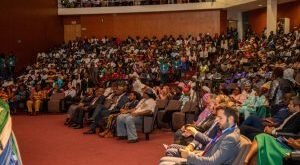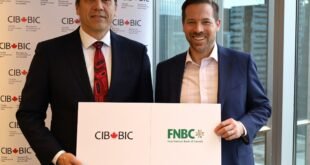The Need for a New Global Financial Framework
In today’s global landscape, the necessity for increased financial transfers from developed nations to developing countries is more pressing than ever. This is especially true in an era where leaders like President Trump and other Western governments are scaling back on aid. The argument is clear: these transfers must not only grow in volume but also take diverse forms. Moreover, multinational corporations and the broader private sector must be actively involved in these efforts—addressing social, health, climate change, and economic inequality issues while contributing to sustainable growth and equitable wealth distribution.
The idea of such a framework is not new. Since the end of colonial times and the United Nations’ attempts to establish a New International Economic Order (NIEO) in the 1970s, there have been repeated calls for a fairer global system. The UN Conference on Trade and Development (UNCTAD), established in 1964, played a key role in these discussions. Despite its noble intentions, the NIEO initiative ultimately failed, though UNCTAD still exists quietly, with its original goals needing a revival.
Recently, the ‘4th International Conference on Financing for Development’ (FFD4) was held in Seville, Spain, where a roadmap for a better world was adopted. This conference marked a significant step forward, highlighting the need for renewed commitment to development financing.
Key Points from the Seville Summit
The Norwegian Minister of Development Cooperation, Åsmund Aukrust, emphasized the paradox of global wealth in his address at the FFD4. He questioned why, despite the world being richer than ever, poverty persists. In an article co-authored with Lisetta Trebbi, Acting Director General of NORAD, they pointed out that global savings exceed $500 trillion, enough to eradicate poverty multiple times over. However, these funds are often diverted away from developing countries.
The gap between what is needed to meet the UN Sustainable Development Goals (SDGs) and what is actually invested has reached unprecedented levels. An annual shortfall of $4-5 trillion—equivalent to one percent of global private savings—exists, while many wealthy nations are cutting their development aid budgets. Tax havens, hidden financial flows, and growing wealth concentration exacerbate this issue.
The Compromiso de Sevilla Roadmap
The final statement from the FFD4, known as the ‘Compromiso de Sevilla,’ outlined four main steps toward a more just world:
- Increase Development Aid: Wealthy nations must commit to higher levels of funding for development.
- Enhance Tax Collection in Developing Countries: Donor countries should support improved tax systems in poorer nations.
- Engage the Private Sector Positively: Multinational corporations and private companies should contribute to development, not hinder it.
- Address Debt Crises: Develop new mechanisms for debt relief and management, as many countries spend more on debt servicing than on education and healthcare.
Aukrust and Trebbi expressed optimism about the potential of the Seville summit to revitalize development financing. Although the U.S. withdrew from the process, 192 UN member states remain committed. Norway, along with Mexico, Nepal, and Zambia, played a crucial role in preparing for the conference, with contributions from NGOs and the private sector.
Challenges and Realism
Despite the positive momentum, skepticism remains. Similar to past initiatives like the NIEO, the promises made in Seville may not translate into concrete action. While the involvement of the private sector is a novel element, there is little clarity on how donor countries will implement these changes or what specific measures they will take.
Historical analysis and future forecasts are essential to understand the mistakes of wealthy nations and to highlight how creating a fairer world order would benefit all. This includes improving governance, reducing corruption, and fostering democratic institutions in developing countries. New systems must be created to manage international transfers effectively, involving governments, NGOs, and both local and international private sectors.
Climate Finance and Global Cooperation
Efforts to address climate change have also seen similar challenges. At previous COP summits, proposals were made for major funding transfers to mitigate environmental disasters and compensate for historical exploitation. However, these ideas have not materialized significantly. Recent COP meetings, including COP29 in Azerbaijan, saw reduced participation and publicity, raising concerns about the long-term impact of these initiatives.
To ensure success, special steps must be taken to implement the Seville roadmap. The group involved in planning the conference, led by Norway and supported by UNCTAD, must move beyond mere promises and create tangible outcomes. Trust in development aid is fragile, and without real progress, it risks further erosion.
A Call for Action
Ultimately, the path to a better world requires collective effort. Donor countries must increase aid dramatically and adopt new implementation systems that place recipient nations at the forefront. The people in developing countries face daily challenges that demand urgent solutions. Meanwhile, wealthy nations must undergo a moral renewal, recognizing that their own well-being is tied to global stability.
Military spending cannot continue unchecked; instead, resources should be redirected toward development and sustainability. As we look to the future, it is imperative that all stakeholders—governments, corporations, civil society, and individuals—take meaningful actions to build a more just and equitable world.
 Info Malang Raya Its All About World News
Info Malang Raya Its All About World News




